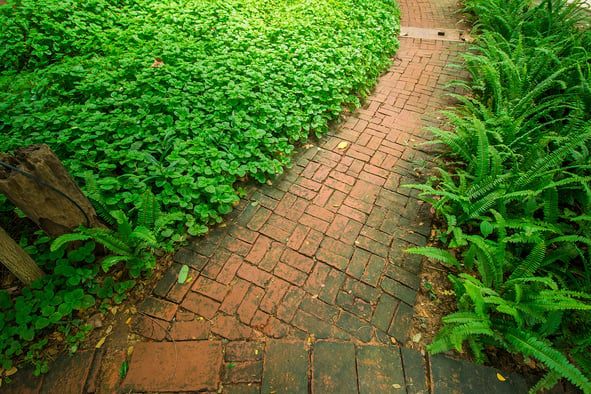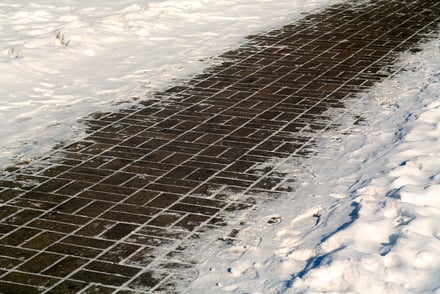 Washington, D.C., is one of the most walkable cities in the country, especially in neighborhoods filled with historic homes and charming brick paths. As a proud homeowner, you always want your paths and brick walkways to be in good condition so they look as beautiful as the rest of the neighborhood. You also want to keep them in their best shape for safety's sake. After a long winter, spring is the perfect time to take a closer look to address any issues with the brick walkways before they get worse.
Washington, D.C., is one of the most walkable cities in the country, especially in neighborhoods filled with historic homes and charming brick paths. As a proud homeowner, you always want your paths and brick walkways to be in good condition so they look as beautiful as the rest of the neighborhood. You also want to keep them in their best shape for safety's sake. After a long winter, spring is the perfect time to take a closer look to address any issues with the brick walkways before they get worse.
What Winter Does to Brick Walkways
Snow, ice, and fluctuating temperatures in winter can take a toll on even the most solid masonry. Water seeps into joints or cracks, freezes, expands, and melts again. This cycle can push bricks out of place or cause them to crack. If bricks become loose or uneven, it creates a tripping hazard that can be dangerous for family, neighbors, and pedestrians.
In older homes, you might also see mortar wearing away or sections of the path shifting due to soil movement or root pressure. These problems don't fix themselves. If you ignore them, they only get more difficult and more expensive to deal with down the road.
Why Spring Is the Best Time for Repairs
Warmer weather makes it easier to carry out repairs, and spring is a natural reset point after months of freeze-thaw cycles. If you act now, you can catch problems early, before more rain or summer heat causes additional wear.
 Taking care of walkway issues in the spring also protects you from liability. A cracked or uneven brick path might seem like a minor issue, but you could be held responsible if someone trips and gets hurt. Making repairs now is a simple way to avoid that risk.
Taking care of walkway issues in the spring also protects you from liability. A cracked or uneven brick path might seem like a minor issue, but you could be held responsible if someone trips and gets hurt. Making repairs now is a simple way to avoid that risk.
Common Repairs That Make a Big Difference
When you catch them early, most brick walkway problems can be resolved without replacing the entire path. A professional team can:
- Reset loose bricks to make the surface even again
- Replace broken bricks with ones that match your home's historic look
- Repair or replace deteriorating mortar joints
- Regrade areas where water tends to pool
For historic homes, these repairs must be done with the right materials and methods. Cutting corners can make things look mismatched or, even worse, lead to faster-moving damage in the future.
Why It Pays to Work with a Specialist
Brick restoration isn't just about filling gaps or patching cracks. It takes skill, especially when the walkway is part of a historic property. Using the wrong mortar or failing to align bricks correctly can compromise the path's look and longevity.
That's why it's worth working with a team that understands historic masonry from the ground up. Traditional tuckpointing methods that match materials to your original brickwork help to protect your investment by preventing future damage.
Renaissance Development: Experts in Historic Brick Care
At Renaissance Development, we specialize in restorations and repairs of historic brick homes all across Washington, D.C. Our team works with traditional materials and methods to keep brick walkways safe, functional, and true to their original design.
We understand the unique challenges that come with preserving older masonry, and we know exactly what to look for after a tough winter. From repairing loose bricks to restoring mortar joints, we're here to help you keep your property beautiful and safe.
Schedule Your Walkway Inspection This Spring
If your brick walkway has shifted, cracked, or just doesn't look quite right after the winter, don't wait. Renaissance Development can assess the damage and recommend the right solution to protect your home and your peace of mind.
Contact us to schedule your spring inspection and take the first step toward a safer, more secure walkway.
Tags:
Brick Walkway, safety for brick walkways, repairs to brick walkways, winter damage to brick walkwaysMay 1, 2025 8:00:00 AM


